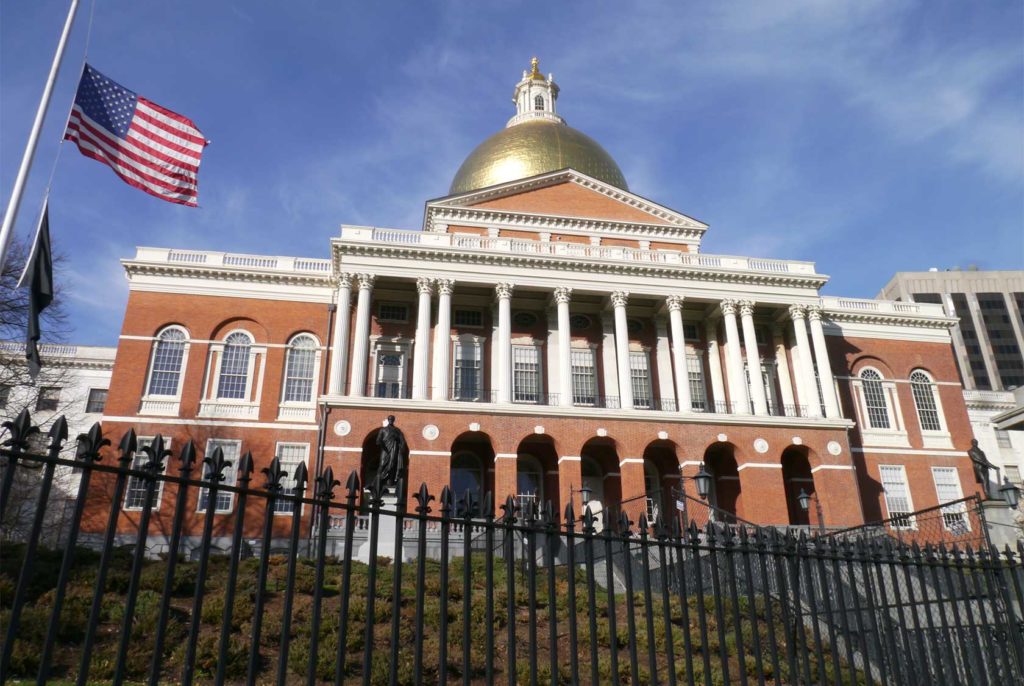Ahead of the Trump administration, state pursues action to protect reproductive health care
Offers new grant funding, regulations to support patients, providers

In an effort to expand and preserve access to reproductive health care in Massachusetts, the Healey-Driscoll administration put out nearly $2 million in new grant funding to support providers and other organizations that work to support patients.
The funding, under the Reproductive Health Access, Infrastructure and Security Grants program, is intended to provide financial assistance to patients and support infrastructure and security improvements for providers. The grants were announced Jan. 7.
“These grants will help ensure that cost is not a barrier for anyone to seek the care they need while also supporting our hardworking service providers in making critical infrastructure and security upgrades that allow them to deliver safe, high-quality care,” said Healey in a statement.
The grants, totaling $1.8 million in support, is the second round of funding under the program, extending the state’s support to four new clinical providers and community organizations with a focus on reproductive healthcare access. Funding began in December and will extend through the end of 2026.
In early 2023, the state distributed about $5.8 million to nine other groups across the state in the first round of grants under the program.
In the new round, recipients in and around Boston include Brigham and Women’s Hospital and the Eastern Massachusetts Abortion Fund, a Cambridge-based nonprofit that works to connect patients without adequate resources to the funds needed to access reproductive healthcare and to limit barriers like language and transportation.
Kate Walsh, secretary of the Executive Office of Health and Human Services, said the state is proud to support providers offering reproductive healthcare.
“These grants are an important step in our efforts to sustain reproductive healthcare in Massachusetts and will enable people to receive informed care when and where they need it,” Walsh said in a statement.

Rebecca Hart Holder, president of nonprofit Reproductive Equity Now, called the grants a reflection of the values state leadership holds. PHOTO: Inequality.org
Advocates said the funding will be important as the country grapples with reduced protections for abortion and reproductive health care following the 2022 Dobbs v. Jackson Women’s Health Organization U.S. Supreme Court decision, which overturned Roe v. Wade’s constitutional protection to abortion access.
Rebecca Hart Holder, president of the Boston-based nonprofit Reproductive Equity Now, called the grants a reflection of the values state leadership holds.
“These organizations are doing essential work to care for Massachusetts patients, and those traveling to our state for care,” she said in a statement. “These investments underscore the Commonwealth’s commitment to reproductive freedom in a post-Roe world.”
The grant funding comes as President-elect Donald Trump prepares to reenter the White House, a political shift that advocates worry will have negative consequences for the reproductive healthcare landscape across the United States.
Throughout his political career, Trump has waffled on the concept of a federal abortion ban. During his first term in the White House, he backed a bill that would have banned abortion after 20 weeks of pregnancy — that legislation passed in the Republican-controlled House of Representatives but never made it through the Senate. In March 2024 during his campaign, Trump suggested that he would support a 15-week national ban, but as of early October said he would veto a national ban, opting to leave it up to the states.
But he has, for the past decade or so, been staunchly antiabortion, a stance reflected in right-wing policy initiatives like Project 2025, the 900-page document developed by conservative think tank The Heritage Project during the 2024 presidential election and intended to be a roadmap for the next Republican president in the White House.
That initiative proposed strategies for limiting access to medication abortion and other forms of abortion, as well as contraception and other reproductive healthcare measures.
Trump has also claimed credit for the 2022 overturning of the Roe v. Wade decision which removed the constitutional protection for abortion access. During his first term, Trump appointed three conservative justices to the Supreme Court of the United States,all of whom concurred on the decision overturning Roe v. Wade.
Beyond the new state grant funding and in response to the coming Trump presidential administration, the Healey-Driscoll administration has taken other steps to shore up reproductive healthcare protections in the state.
On Jan. 8, the Commonwealth’s Board of Registration in Nursing approved amendments to state regulations that will protect nurses from losing their licenses or being disciplined by the board for providing or assisting with reproductive healthcare in the state.
The decision, unanimous among the board’s 11 members, built off language to the same effect in the 2022 Shield Law, state legislation passed in the wake of the overturning of Roe v. Wade. In a press release, the state said the new approval from the board is intended to reinforce consistency in state policy and reassure nurses.
Healey and other state leaders have long been critical of efforts in recent years to limit access to reproductive care. In early 2023, Attorney General Andrea Campbell launched a statewide abortion legal advice helpline, designed to help patients and providers access free legal advice and information about abortions in the state. In April of that year, Healey signed an executive order ensuring access to mifepristone, a tablet that has long been used for medication abortions, in response to a ruling from a federal judge in Texas to restrict access to the drug.
Through its new vote, the Board of Registration in Nursing put forward emergency amendments to state regulations. The process of approval on an emergency basis allows the regulations to take effect for three months as official steps, including a public comment period and hearing, take place.
Over the next month, the Department of Public Health said it aims to extend the same assurances and protections to all licensed healthcare providers in the state — from physicians to pharmacists to psychologists and genetic counselors.
Dr. Robbie Goldstein, the state’s public health commissioner, said the action sends a “powerful message” to caregivers.
“Doing the right thing for patients should never be a source of fear or concern,” he said in a statement. “[The Department of Public Health] will continue to work in solidarity with providers across the state, dismantling barriers to critical, life-saving healthcare and services, and protecting those who courageously deliver this vital care.”






